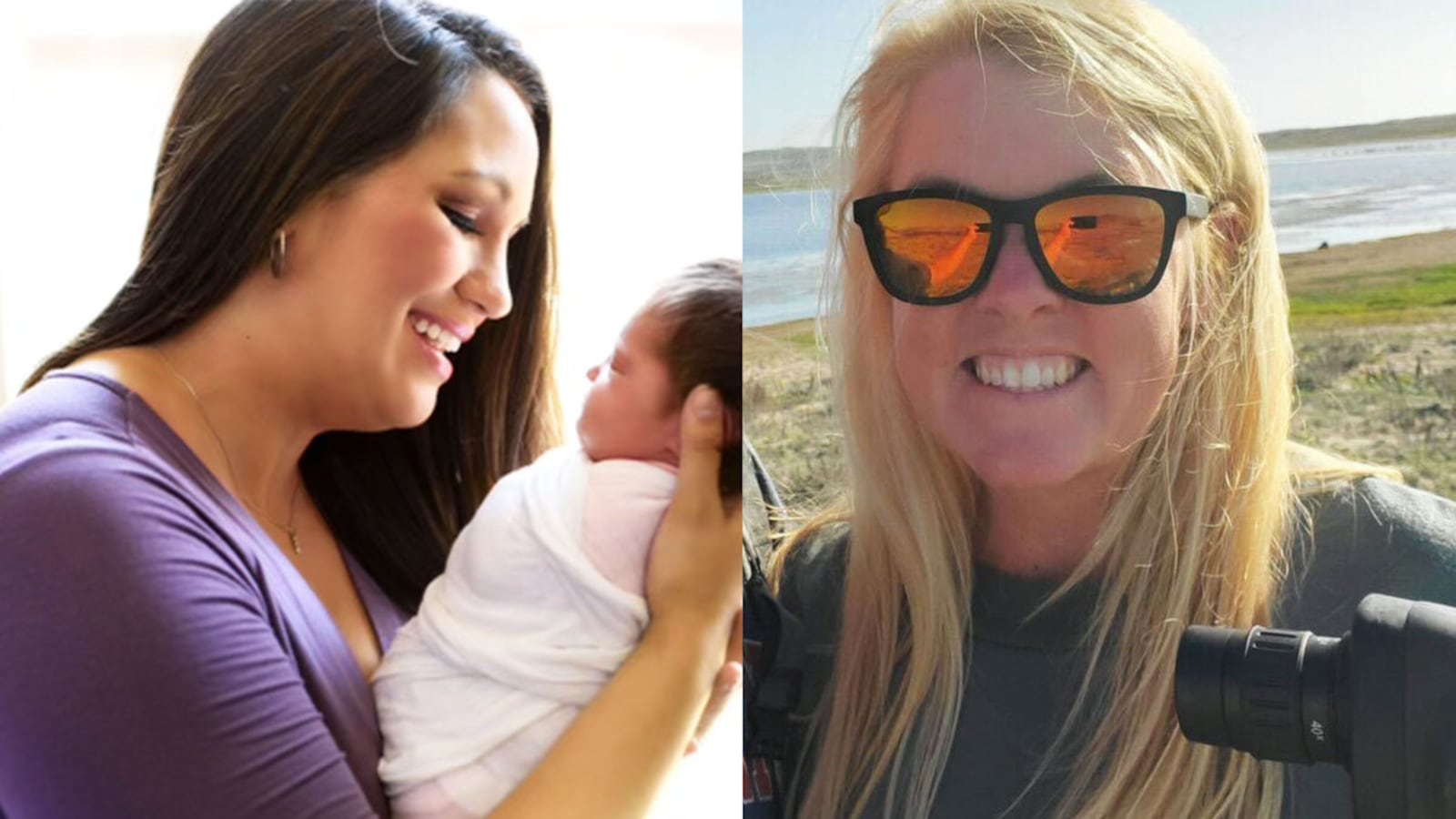Erin Consuegra’s three rounds of IVF have ended in heartbreak.
The first, in 2021, did not work. The second, in 2022, resulted in a pregnancy, but she miscarried on Feb. 22 after just 18 weeks. Her third produced an embryo that has been sitting in a freezer, waiting for a scheduled April transfer to her uterus.
But on Thursday, Consuegra learned that a ruling by the Alabama Supreme Court had prompted her clinic to pause IVF treatments—putting her journey toward motherhood in limbo.
“When I first heard the news about my clinic my first thought was, ‘Holy crap. I am 41 and it seems like I am going to be a month too late.’ That's $100,000 and six years of treatment and I may be a month too late. It’s heartbreaking,” Consuegra told The Daily Beast.
“This is the second February 22 that I essentially lost a child.”
Consuegra, who lives in Auburn, is one of thousands of Alabama women scrambling to figure out next steps after the state’s high court ruling that frozen embryos are legally considered children.
The ruling stems from a lawsuit filed by three couples who lost embryos at a fertility clinic in 2020 when a hospital patient removed them from tanks of liquid nitrogen and dropped them on the floor. The court declared that an 1872 statute, the Wrongful Death of Minor Act, covers embryos and allows the parents-to-be to sue.
“Even before birth, all human beings have the image of God, and their lives cannot be destroyed without effacing his glory,” Chief Justice Tom Parker wrote.
Clinics are now concerned that damage to any embryos—which is a routine part of the IVF process—could put them in legal jeopardy. As a result, at least three Alabama health systems have put IVF treatments on hold.
“We must evaluate the potential that our patients and our physicians could be prosecuted criminally or face punitive damages for following the standard of care for IVF treatments,” said Hannah Echol, a spokesperson for the University of Alabama at Birmingham, which has paused IVF but will still offer egg retrieval and freezing.
Dr. Mamie McLean, an infertility specialist at Consuegra’s clinic, Alabama Fertility Specialists, called the ruling “truly a nightmare” for doctors and their patients. “We are pro-family here in Alabama and we need our state lawmakers to protect our patients’ rights to build their families and access the healthcare they need to conceive,” she wrote in a Thursday AL.com op-ed. “Please help us get back to the days when we were anxiously refreshing our computer screens for long-awaited pregnancy tests.”
For Brittany Stuart, the path toward pregnancy was difficult and time-pressured. After learning that her father had cancer, she and her husband tried to get pregnant—and when that proved difficult, they began IVF treatments in 2018. Stuart told The Daily Beast she went to Alabama Fertility Specialists and produced two embryos. One became her 5-year-old daughter, and the other is on ice.
She had not decided if and when to try for a second pregnancy. But now she has to decide whether to keep the embryo in Alabama, where it’s not clear she’ll be able to use it, or have it transported to Virginia, where she now lives, and run the risk of it being destroyed in the process.
“We are not sure if we want to grow our family, but this ruling has forced us to make a decision. And none of the decisions are good,” Stuart said. “This is the handmaid's tale.”
Another Alabama patient, who did not wish to be identified, said she also doesn’t have the luxury of time. The 41-year-old mother of two is scheduled for egg retrieval on Friday—if her clinic doesn’t decide to follow others and cancel the procedure.
“I’m nearly 42. I don’t have a bunch of time to sort this out,” she said in a text message to The Daily Beast. “I can’t (and should not have to) wait for years while the legislature thinks about if and how I get to have a family. Not to mention I’ve already invested tens of thousands of dollars in this process, found a doctor I trust, taken time off work for appointments, [and] taken dozens of hormone injections.
“To tell me to just wait, or start over, or go somewhere else is callous and unrealistic.”
Now, advocates, patients, and doctors are trying to determine what the ruling means for patients undergoing IVF amid concern that the standard could be adopted in other states.
“We will continue to fight to maintain and increase access to care for the 1 in 6 adults nationwide who struggle with infertility,” Barbara Collura, President and CEO of RESOLVE: The National Infertility Association)" href="https://urldefense.com/v3/__https://resolve.org/__;!!LsXw!UZyKtJ_0CjRf9PhgsB3AY-A1CLEFYOOx2DxaSXqnqNKCRDtNju4tDLRnVX_Y6NGfx8CxSds2C4iJPebdVfKUd7n0$">RESOLVE: The National Infertility Association, said in a statement.
Despite the uncertainty, Consuegra said she is choosing to hold onto “a little bit of hope” that her April transfer will still happen.
“But my doctor made sure to let me know that everything is up in the air,” she said.







